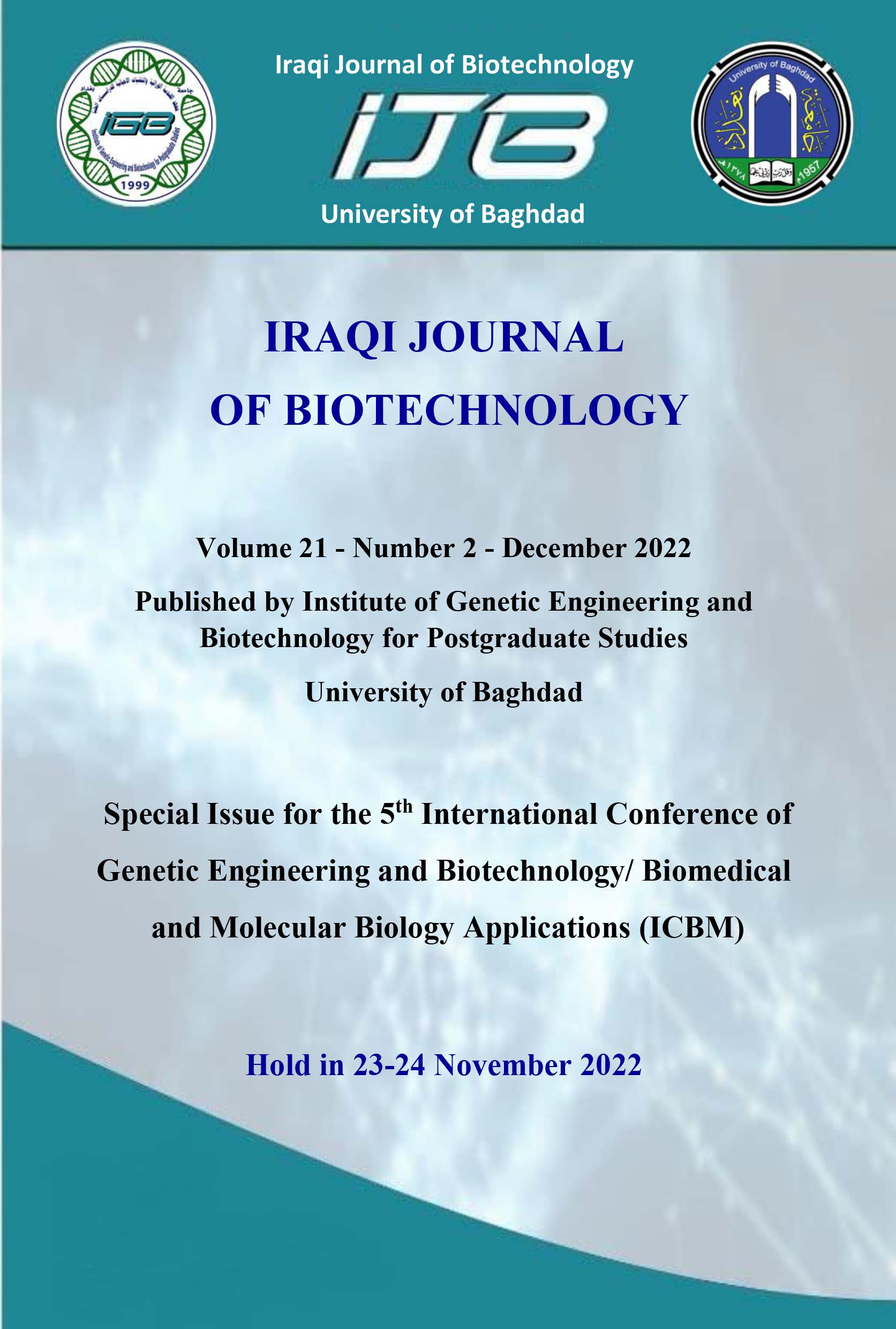Colistin Resistant and Biofilm Formation among Multi-Drug Resistant Klebsiella pneumoniae Isolated from Different Clinical Samples
Abstract
Carbapenem-resistant Klebsiella pneumoniae has listed among the priority pathogen group as it poses great threat to human health. Colistin resistance is considered a serious problem. Thus, in this study aimed to investigate the colistin resistance among carbapenem resistant K. pneumoniae in a sample from Iraqi patients. A total of 182 clinical samples (including urine, pus, blood, and ear swabs) were gathered from various clinical specimens. The result showed 124 (68.13%) isolates of Klebsiella pneumoniae were found out of the total samples, they were identified using morphological and cultural characteristics and the VITEK 2 system. K. pneumoniae isolates from Urine samples showed highest percentage (69.4%). Isolates determined in female samples was 79.8% which is higher than isolates in male samples (47.5%). The disc-diffusion method and VITEK 2 system were used to determine K. pneumonia’s antibiotic resistance to the list of antibiotics in addition to Colistin and Imipenem. The results indicate that all isolates are completely resist to Ampicillin, Amoxicillin-Clavulanic Acid, Meropenem, Norfloxacin, and Cefotaxime, while some isolates displayed high resistance to Cefazolin, Ceftazidim, Ceftriaxone, and Cefepime, moderate resistance to Piperacillin-Tazobactam, Gentamicin, Cefoxitin, and Nitrofurantoin and demonstrate low resistance to Amikacin, Imipenem, Ciprofloxacin, Levofloxacin, Tigecycline, Tirmethoprim Sulfamethoxazole and Ertapenem (7.7%), while all isolates exhibit susceptibility to Fosfomycin, out of them, the Colistin resistance isolates about 31 (25%), and 93 (75%) were sensitive. Due to Colistin's low agar diffusion, 12 isolates that demonstrated Colistin sensitivity by disk diffusion were determined to be resistant by E-test. Additionally, isolates were more common 39 (73.5%) among strong biofilm formers, while 9 (16.9%) isolates were moderate and only 5 (9.4%) were week biofilm formers (p-value ≥ 0.05). Colistin resistant K. pneumoniae showed in strong biofilm isolates 24 (45.28%) and moderate biofilm isolates 2 (3.77%) but the weak biofilm formation isolates were only in 3 (5.66%).


